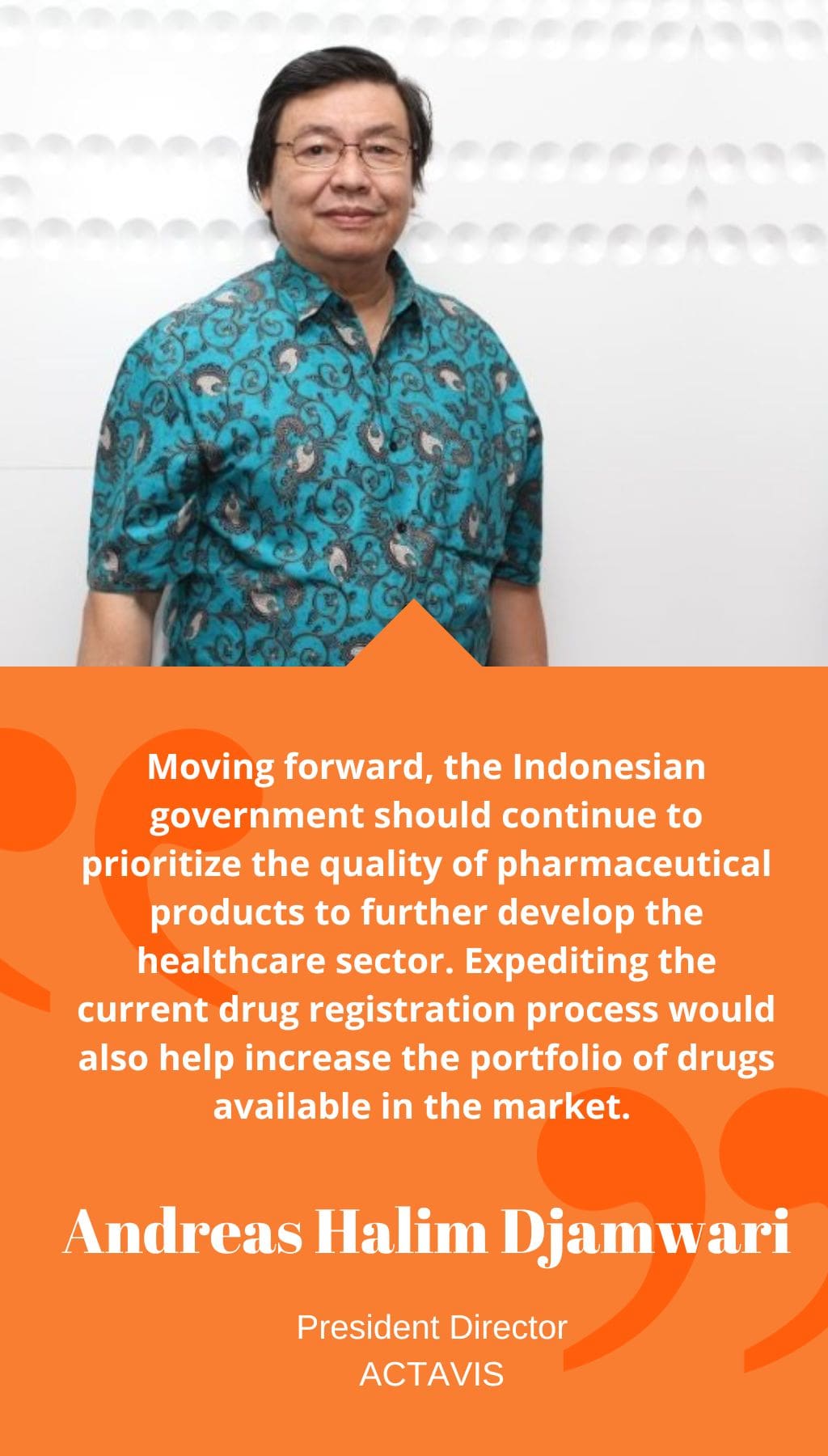
- Indonesia | 2 July 2015

Actavis Indonesia is a prominent manufacturer in Indonesia. How has the industry changed over the years?
Actavis Indonesia, formerly known as Dumex, Alpharma, and Actavis, has a rich history in the Indonesian pharmaceutical industry. Established in 1969, Actavis Indonesia was the first foreign pharmaceutical company to have manufacturing operations in the country. In the early 1970s, multinational companies dominated the industry, accounting for 80 percent of the market share, while domestic companies held a minority stake of 20 percent. However, there has been a significant shift in the market composition since then. Today, domestic companies command approximately 72 percent of the industry’s market share, with multinationals controlling the remaining 28 percent. This change can be attributed to improved Indonesian manufacturing expertise and domestic companies’ better understanding of the local pharmaceuticals market, particularly in the over-the-counter (OTC) segment.
The market’s composition evolution has affected Actavis Indonesia’s operations. How has it influenced the company?
Actavis Indonesia currently offers a wide range of products to the market, primarily consisting of prescription drugs and OTCs. As a multinational company, Actavis adheres to stringent regulations, ensuring high product quality. While this means customers can rely on the company for quality, Actavis may not always offer the lowest price. In recent years, Actavis Indonesia’s strategy has evolved to focus more on prescription drugs, which constitute approximately 95 percent of its product offerings. The remaining 5 percent comprises OTC products. Additionally, Actavis serves as a contract manufacturer for several large pharmaceutical companies in Indonesia, leveraging its state-of-the-art manufacturing facilities. The company’s high-quality products meet stringent standards and are even exported to markets with strict quality requirements, such as Europe and Japan.
Actavis Indonesia operates in both domestic and external markets. What is the proportion of products going to each of these areas?
The majority of Actavis Indonesia’s product volume, around 70 percent, is concentrated in the domestic market. The remaining 30 percent is directed towards external markets. It’s important to note that most of Actavis Indonesia’s exports are intra-company transactions, meaning they supply products to other entities within the Actavis group, rather than marketing directly to external markets.
Actavis plc is a well-known global pharmaceutical company with a worldwide presence. What is your relationship with Actavis plc, and how important are your operations in Indonesia?
Actavis Indonesia maintains close communication with Actavis’ regional and global operations and benefits from their expertise and wide reach. Historically, Actavis Indonesia has been one of Actavis’ largest subsidiaries in the Asia-Pacific region. However, there have been challenges in the Indonesian market. One of Actavis Indonesia’s successful products, Somadril, was recently taken off the Indonesian market due to misuse cases. This affected sales in 2014 and the company’s share of regional sales. Despite this setback, Actavis Indonesia values its relationship with Actavis plc and continues to collaborate to navigate the Indonesian market successfully.
What is Actavis Indonesia’s growth strategy for the Indonesian market?
Actavis Indonesia has implemented an organic growth strategy by reorganizing its corporate structure in July 2014. The company now focuses on Business Unit Divisions, holding each division accountable for profit and loss. This allows Actavis Indonesia to concentrate its attention on products with adequate growth potential. The company aims to launch new products whenever possible, although the lengthy drug approval process in Indonesia poses a challenge. Actavis Indonesia is also excited about expanding into branded/originator pharmaceuticals through recent acquisitions of well-known companies such as Forest Laboratories, Warner Chilcott, and potentially Allergan. Acquisitions are considered a key growth strategy, but finding Indonesian companies that align with Actavis’ vision and capabilities can be a challenge.
What are some important considerations for the Indonesian pharmaceutical industry moving forward?
Moving forward, the Indonesian government should continue to prioritize the quality of pharmaceutical products to further develop the healthcare sector. Expediting the current drug registration process would also help increase the portfolio of drugs available in the market. Additionally, regulators need to maintain a focus on combating corruption, ensuring that both domestic and multinational companies adhere to the same set of rules. By addressing these considerations, the Indonesian pharmaceutical industry can continue to progress and meet the evolving healthcare needs of the population.














